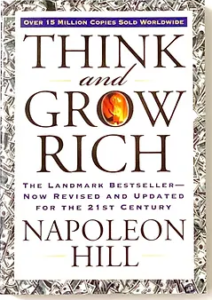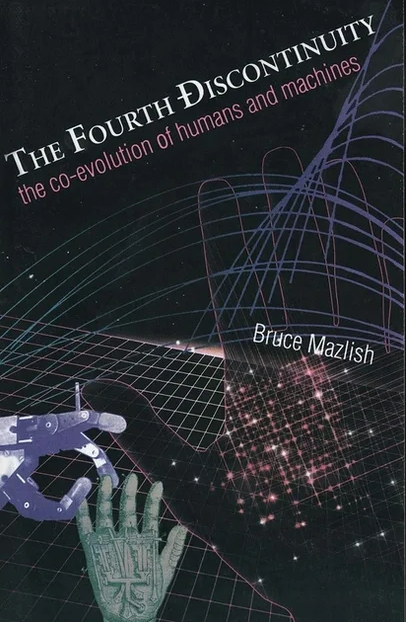In the 1999 film ‘The Matrix,’ Keanu Reeves stars as a computer programmer who goes by the name of Neo. One day, he hears a shocking story from the legendary hacker Morpheus (Laurence Fishburne). What he knows as the present year of 1999 is actually 2199, and artificial intelligence computers, AI, are using a program called the Matrix to nurture humans like livestock, using human bio-energy as their power source.
Neo begins to awaken from the grand illusion of the Matrix, becoming increasingly ensnared by the question of who his true self is. To solve this mystery, Neo seeks out the Oracle under Morpheus’s guidance, a being of somewhat awakened consciousness. The Oracle points to a sign above the kitchen door written ‘Temet Nosce’ and adds an explanation.
“It’s Latin. Means ‘Know Thyself.’”
People often seek wisdom in the mountains when faced with difficulties, at least they used to. Nowadays, they might turn to tutors or educational institutes instead. While wisdom can be found there, it is, in fact, scattered everywhere. From the words of adults, religious texts like the Bible, self-improvement books, to various seminars, similar wisdom flows in different forms of knowledge. Even textbooks on physics, biology, economics, and theories of art and music contain many ways of thinking. Movies, dramas, novels, markets, workplaces, and the journey home after work also offer wisdom. We just need to gather, contemplate, train, and execute these teachings. However, this is not easy.
Wisdom is often hidden in plain sight, complex, or sometimes appears didactic or superficial like a moral textbook. Stephen R. Covey’s “The 7 Habits of Highly Effective People” is one such book, but it differentiates itself by advocating for ‘inner change’. It’s true that mere knowledge is insufficient for growth and real change. But how does one achieve inner change? It’s not as simple as just deciding to do so. The constant outpouring of self-help books paradoxically proves they often fail to persuade us. Without a sense of urgency for survival and growth, convincing us is unlikely.
Look around. People who are considered successful are not necessarily more intelligent or capable than others. However, most of them are consistent in doing at least one thing, leading to the formation of good habits and training. It’s something most of us already know, implying we lack awareness of its importance. We have not convinced ourselves of the necessity for training. Persuasion is not just about intellectual acceptance; it needs to move us or bring realizations. Unfortunately, such realizations often come in hard times. Realizations must resonate with our unconscious, agreeing on the necessity for survival and growth. Only then will our bodies and minds join in training and implementation.
Self-help books are evolving, not just reiterating moral teachings or wise sayings but finding evidence in successful individuals, geniuses, and legends. For instance, Napoleon Hill in “Think and Grow Rich” draws success principles from prominent figures like Henry Ford. The book “Sparks of Genius” by Root-Bernstein presents evidence from geniuses like Einstein. Recent self-help literature also attempts to persuade through fable-like stories.

Let’s shift our perspective slightly and seek evidence in scientific achievements. This doesn’t mean grand theories but rather looking at recent scientific progress based on what we’ve learned in school. Although modest, this effort has two meaningful aspects. Firstly, we might find the Know-why, which can be a powerful motivator if we understand the reasoning and workings behind actions. If we gain enough Know-why, we might also develop Know-how, as our paradigm shifts closer to natural laws, predicting more accurate and effective outcomes.
Natural laws include human nature, implying that following the natural course, like water flowing downhill, is effortless. Going against it requires more effort. The saying “Know Thyself” is often understood as “stay within your limits” but originally encouraged self-reflection beyond religious faith. Modern psychologists and neuroscientists have taken this further, exploring our capacities and limitations in thought.
We must unravel four narratives about ourselves. The first is that humans are complex systems, the most intricate in existence, involving countless components and interactions. Our bodies are networks of systems like the skeletal, muscular, nervous, digestive, and circulatory systems, all interacting. Despite the complexity seen in machines like cars or space shuttles, the human body’s trillions of cells make it incomparably complex.
The second narrative is that we are evolved beings, not necessarily from amoebas or monkeys, as evolution remains a hypothesis and subject of debate. The emphasis here is on our adaptability and evolution through learning algorithms, survival, growth, and reproduction.
The third narrative is that our thoughts are the result of information processing by the brain, a biological computer. Despite similarities, the significant difference is that computers operate digitally, while our thoughts and memories are the result of a network of neurons and synapses.
Lastly, over 99% of our thoughts are processed unconsciously. Given the brain’s energy consumption, it’s inferred that we process a vast amount of information, mostly unconsciously, relying on it for our daily lives. Recognizing the existence and impact of our unconscious might be beneficial, possibly even a source of our competitive edge.
Despite scientific efforts, much knowledge depends on assumptions and hypotheses. What we know might only be an approximation of truth or belief, as stated by physicist Richard Feynman. The findings of humanities and social sciences, where practical experiments are nearly impossible, are largely hypothetical.

In fact, many theories proposed by past masters have turned out to be quite absurd in today’s context. Bruce Mazlish, a historian at MIT, points out in his book “The Fourth Discontinuity – The Co-Evolution of Humans and Machines” that there have been three concepts in human history that deeply wounded human pride. Mazlish argues that just as Copernicus, Darwin, and Freud overturned our illusions of separation from and domination over the cosmos, the animal world, and the unconscious, it is now necessary to relinquish a fourth fallacy or discontinuity–that humans are discontinuous and distinct from the machines they make.
It’s difficult to understand why uncovering truths about the world and learning secrets about ourselves would injure our pride. Yet, this narrative suggests that until then, we were either quite arrogant or profoundly mistaken about ourselves. Thinking in reverse, it implies that what we currently believe to be true might also be wrong or only partially correct. Nonetheless, with a bit of imagination added to the knowledge painstakingly discovered by many scientists, we can explain many phenomena we experience. The reason for initially mentioning a few human aspects revealed by science is because we believe that the closer our perspective is to natural phenomena, the more powerful it will be.

답글 남기기